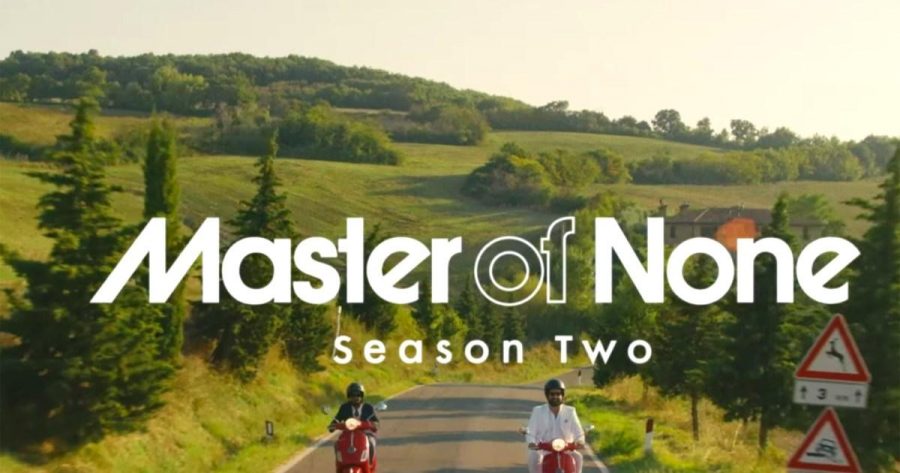Over the past year, I have eagerly awaited the return of Aziz Ansari’s Netflix show, Master of None. I watched the first season in a matter of two days, which makes it one of the first television programs I really binged. Before that show, I didn’t really understand the point of choosing TV over sleep. I finished the finale of the show very late at night, but I remember thinking that it was revolutionary. And not only because it is one of few television programs wholly headed by a man of color. The writing is also some of the best I have ever seen.
The second season blows the first away in some respects, and falls slightly short in others. The first is a far more linear story, with the main plot being the main character, Dev’s, romantic relationship with a woman named Rachel, and their eventual breakup. The second season is far less structured, though still ostensibly about Dev’s relationship, this time with a women named Franchesca. However, in both seasons, there are certain episodes that are separate from the main plot and instead tackle an issue or a friend’s journey. The later type are … just better, and the second season has more of them, and does them better. The romantic journey of Dev is funny and compelling and often tragic, but the episodes that step away from the main plot sometimes so far away that Dev barely appears in them, are some of the best television I have ever seen. Ansari’s show tackles complex and everyday emotions and managed to imbue them with the same level of gravitas.
Of the ten episode second season, three are these type of show. The first episode I want to talk about is the third chronologically, called “Religion” the second is “New York, I Love You”, episode 6,, and the third is “Thanksgiving”, which is episode 8. “Religion” begins of a montage of several children being forced to Church, Mosque, and Temple (Both Jewish and Hindu), and from there examines the tenets of religion. It is very clearly made by someone who comes from religion but is not religious, which is something that is becoming more and more common in America. The obligation of religion is not as easily accepted by people of the closer generation, which highlights the type of culture clash that Ansari first explored in the first season episode, “Parents”, which followed his father’s journey from India to America. “Religion” is a spiritual successor to that episode, with a slightly improvement in that it allows Ansari’s character’s mother, played by Ansari’s actual mother, to have a bit more involvement, though she remains deadpan throughout.
The sixth episode, “New York, I Love You,” may be my favorite episode of the show. It begins with Dev and his friends, but almost immediately leaves them to join a doorman in a fancy high rise building, named Eddie. After time spent with him, it moves to what maybe my favorite sequence of any television show ever. All the sound cuts out, and we join Maya, as she works at a convenience store. Maya is deaf, and throughout her entire vignette, there is no sound. The longer this goes makes one realize how often sound is present in media, even when a moment is ‘silent’. Whether it is music, or just daily life, there are few quiet moments in television. Maya’s moment is not just quiet, however, but also hilarious, and, honestly, grounds for a spin-off. From Maya, we move to Samuel, a taxi driver originally from Africa, and he and his friend’s attempts to get to party the night away. This episode makes me want Ansari to create a Black Mirror or Twilight Zone style show, except it’s about various young people trying to live their lives.
The 8th episode, “Thanksgiving”, is, in my opinion, one of a kind. It follows Dev’s close friend, Denise, who is a black lesbian, through a series of Thanksgivings, as she comes to grips with her identity, and her mother’s complicated acceptance of it. Though at points it uses exposition a bit heavy handedly, it hits its emotional beats perfectly. It is all held down by the acting of Angela Bassett, who plays Denise’s mom. This episode is something truly new, and it works so well in the show. It also shows a courage on Ansari’s part. This show could be a Seinfeld, or a Louis, both of which also came from artists moving from stand up to their own shows, which almost always stuck to the main character and their experiences. But with episodes like Thanksgiving, it departs from that mold, and really benefits from it.
There is so much more in Ansari’s work, which is both relatable and somewhat fantastical. The music and the dedication to stylism both deserve entire articles written about them, and Ansari’s ability to create a thoroughly flawed character while also managing to keep him mostly kind and considerate is commendable. While there are flaws with aspects of the show, i.e. some of the pacing is off and certain plot points aren’t foreshadowed clearly enough, it lives up to the emotionality and truthfulness of the first season, and shows even further what Ansari can do.


